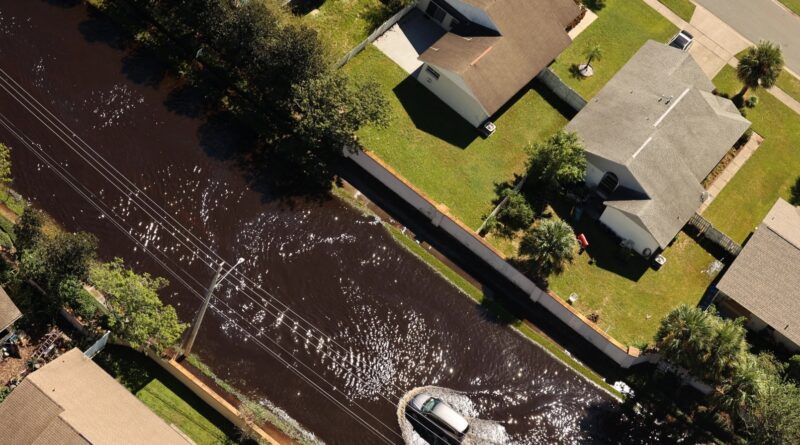Partisan Divide Over Climate Change is Narrowing in Florida
The partisan divide between Republicans and Democrats in Florida over climate change is diminishing. In a recent survey on Florida Climate Resilency by Florida Atlantic University, a record number of Florida Republicans agree that human actions are causing climate change. Since 2019, the percentage of Republicans who agree that climate change is caused by human activity has increased by 10 percent.
This is a step in the right direction, as it signals Florida Republicans are not only recognizing the threat posed by climate change, but they are becoming open to the idea of taking action to address climate change.
There are a few reasons why the partisan divide over climate change in Florida may be narrowing. First is the effects of climate change are harder to ignore as they grow more severe. In 2022, Floridians experienced two major storms: Hurricane Ian in Southwest Florida, and Nicole on Florida’s East coast. Between both storms, NOAA estimated the financial and physical damage totaled more than $113 billion and caused over 150 deaths.
Outside of the personal impact, these storms are impacting Florida businesses, whose leaders see the hit to their bottom line and are beginning to see the need to take action on climate change.
The narrowing partisan divide over climate change in Florida is a positive development, a sign that more and more Floridians are not only recognizing the threat posed by climate change but are becoming open to taking action to address it. This provides Florida a unique opportunity to serve as a role model for other states and use the opportunity to show the country how to work across party lines to solve the climate crisis.
During the Summer of 2020, Florida Governor Ron DeSantis signed SB 178, a climate-related bill into law. The bill prohibits spending tax dollars on projects in coastal areas that have not taken rising sea levels into account. This was a historic first for Florida, as SB 178 was the first climate related bill to make it out of the Legislature.
DeSantis, a Republican governor, has spent a part of his time in office focused on climate adaptation for the Sunshine state. Upon taking office, DeSantis requested the resignation of South Florida Water Management District appointees due to their poor environmental record. These are baby steps for Florida, which is home to over 1300 miles of coastline, but important steps as the state is currently facing harmful algae blooms, rising sea levels, and more intense hurricane seasons.
On the national level, members of the Florida Republican Congressional delegation along with Senator Marco Rubio have joined bipartisan climate-focused caucuses such as the Conservative Climate Caucus and the Senate Climate Solutions Caucus.
It is important for leaders in the Sunshine state to take advantage of this opportunity to build consensus and focus on finding solutions to mitigate the impact of climate change. Both Republicans and Democrats need to develop a comprehensive plan to address climate change. This plan should include measures to reduce greenhouse gas emissions, to adapt to the effects of climate change, and to help businesses and communities prepare for the future.
Florida is ground zero for the climate crisis, and it can no longer continue to ignore the threat. The time for Florida to take bipartisan action and address climate change is now.
Originally written for and published on The Invading Sea

